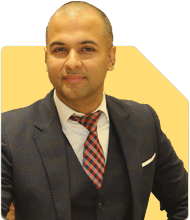Hello,
I am 43 Years old and earning in-hand 2.2+ lac per month, from this year I have started investment in MF SIP(60K/month),
NPS(10% basic + 50k/yrs from past 5 yrs), PPF (12500/month from past 5 yrs), Emergency fund 3lac (FD), EPF(20+lac), No EMI(Debt free - hold 2 property), Term Plan (50 lac) + 1.5 CR (Corporates cover)-> have external plan for 1.5 CR more + minimum external medical insurance plan (Currently corporate medical plan of 15 lac available)
Equity investment is 0. My monthly expense is around 50k.
I have two kids 5 and 10 yrs old - need to plan for education and my retirement(at 60 age).
I can invest more 80-90k/month, Risk capacity is high, please suggest.
Requirement - Education 2 CR for (1 CR each Kid appx) and for retirement around 5 CR liquid cash.
Ans: It's wonderful that you have a solid financial foundation and a clear vision for your future. Let's review your current investments and suggest strategies to help you achieve your goals for your children's education and your retirement.
Current Financial Situation
Monthly Income and Expenses
In-hand Income: Rs. 2.2+ lakhs per month
Monthly Expenses: Rs. 50,000
Current Investments
Mutual Fund SIP: Rs. 60,000 per month (started this year)
NPS: 10% of basic salary + Rs. 50,000 annually (contributed for the past 5 years)
PPF: Rs. 12,500 per month (contributed for the past 5 years)
Emergency Fund: Rs. 3 lakhs (in Fixed Deposit)
EPF: Rs. 20+ lakhs
Term Plan: Rs. 50 lakhs + Rs. 1.5 crore (corporate cover) + additional Rs. 1.5 crore
Medical Insurance: Corporate plan of Rs. 15 lakhs + minimum external plan
Assets
Two Properties: Debt-free
Financial Goals
Children's Education: Rs. 2 crores (Rs. 1 crore for each child)
Retirement: Rs. 5 crores liquid cash by age 60
Investment Strategy
1. Enhance Equity Exposure
Given your high-risk capacity and long investment horizon, increasing your equity exposure is prudent. Equity investments can offer higher returns compared to other asset classes.
Increase SIP Amount: You can invest an additional Rs. 80,000-90,000 per month. This can be allocated to diversified equity mutual funds, mid-cap funds, and small-cap funds for higher growth potential.
2. Optimize Existing Investments
Mutual Fund SIPs: Continue your existing SIPs. Consider adding funds with a good track record and those that align with your risk appetite.
NPS: This is a good investment for retirement savings due to its tax benefits and long-term growth potential. Ensure your allocation is optimized between equity and debt within NPS.
PPF: Continue your contributions to PPF for tax-free returns and safety. However, PPF has a lower return compared to equities, so balance your investments accordingly.
3. Diversify Investments
Diversification helps manage risk and capture opportunities across different market segments.
Equity Funds: Increase investments in equity mutual funds. Consider large-cap, mid-cap, and small-cap funds for a balanced growth portfolio.
Debt Funds: To balance the portfolio, consider debt mutual funds for stability and predictable returns.
Gold: Small allocation to Sovereign Gold Bonds (SGBs) can act as a hedge against inflation and market volatility.
Education Planning for Children
1. Systematic Investment Plan (SIP) for Education
Start dedicated SIPs in equity mutual funds targeted for your children's education. This will help in accumulating the required corpus systematically over time.
2. Child Plans
Consider investing in child-specific mutual funds or ULIPs that offer long-term growth and benefits tied to education milestones.
Retirement Planning
1. Retirement Corpus Calculation
With a target of Rs. 5 crores by age 60, let's ensure your investments align to meet this goal. A mix of equity and debt will provide growth and stability.
2. Retirement-Specific Funds
Consider investing in retirement-focused mutual funds and increasing your NPS contributions. These funds are designed to grow your savings efficiently over the long term.
3. Review and Rebalance Portfolio
Regularly review and rebalance your portfolio to align with changing market conditions and life stages. This will help in maintaining the desired asset allocation.
Risk Management
1. Adequate Insurance Cover
You already have substantial term insurance and health insurance coverage. Ensure they are sufficient to cover any unforeseen circumstances.
2. Emergency Fund
Maintain or slightly increase your emergency fund to cover 6-12 months of expenses. This provides a safety net for unexpected events.
Consultation with a Certified Financial Planner (CFP)
1. Personalized Financial Advice
A Certified Financial Planner can offer personalized advice, taking into account your specific financial situation, goals, and risk tolerance.
2. Expert Management
CFPs help in managing your investments effectively, optimizing returns while minimizing risks.
3. Comprehensive Planning
CFPs can assist with comprehensive financial planning, including tax planning, estate planning, and more, ensuring all aspects of your financial health are covered.
Example Investment Plan
Here’s a simplified example of how you might allocate your additional Rs. 80,000-90,000 monthly investment:
Equity Mutual Funds: Rs. 50,000 in diversified large-cap, mid-cap, and small-cap funds.
Debt Mutual Funds: Rs. 20,000 for stability and income generation.
Gold/SGB: Rs. 10,000 for diversification and inflation hedge.
Regular Monitoring and Adjustments
1. Annual Review
Conduct an annual review of your investments and financial goals. Adjust your SIP amounts and asset allocation as needed.
2. Stay Informed
Keep yourself informed about market trends and economic changes. Staying updated will help in making informed investment decisions.
Conclusion
Your current investments and financial strategies are commendable and align well with your goals. By increasing your equity exposure, optimizing existing investments, and consulting a Certified Financial Planner, you can confidently work towards securing your children’s education and a comfortable retirement.
Your disciplined approach and willingness to invest more monthly will significantly enhance your financial security. Continue to monitor and adjust your investments regularly to stay on track.
Best Regards,
K. Ramalingam, MBA, CFP
Chief Financial Planner,
www.holisticinvestment.in





























